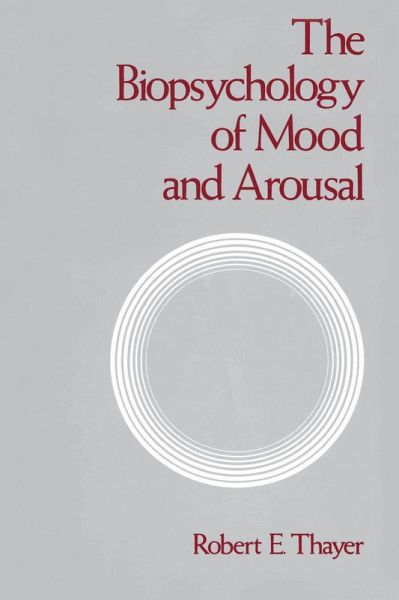
The Biopsychology of Mood and Arousal (eBook, PDF)
Versandkostenfrei!
Sofort per Download lieferbar
17,95 €
inkl. MwSt.
Weitere Ausgaben:

PAYBACK Punkte
9 °P sammeln!
What is the biological function of daily mood variations? What is the relationship between mood and such factors as exercise, time of day, nutrition, stress, and illness? Drawing on his own wide-ranging research concerning subjective assessments of mood and on extensive research by others, Dr. Thayer presents a comprehensive theory of normal mood states, viewing them as subjective components of two biological arousal systems, one which people find energizing, and the other which people describe as producing tension. The author explains these two mood effects in relation to a complex relationsh...
What is the biological function of daily mood variations? What is the relationship between mood and such factors as exercise, time of day, nutrition, stress, and illness? Drawing on his own wide-ranging research concerning subjective assessments of mood and on extensive research by others, Dr. Thayer presents a comprehensive theory of normal mood states, viewing them as subjective components of two biological arousal systems, one which people find energizing, and the other which people describe as producing tension. The author explains these two mood effects in relation to a complex relationship between energy and tension. Relevant research is systematically reviewed, and moods are analyzed in relation to circadian rhythms, exercise, nutrition, sleep, stress, and cognition. Perceptual and motivational effects of mood are also discussed, as are measurement and research design issues. Unique in its depth and comprehensiveness, this book will be of interest not only to researchers in psychology, biology, and medicine, but its clear style of presentation and the practical activities suggested for mood regulation will make it interesting to general readers as well.
Dieser Download kann aus rechtlichen Gründen nur mit Rechnungsadresse in A, B, BG, CY, CZ, D, DK, EW, E, FIN, F, GR, HR, H, IRL, I, LT, L, LR, M, NL, PL, P, R, S, SLO, SK ausgeliefert werden.













